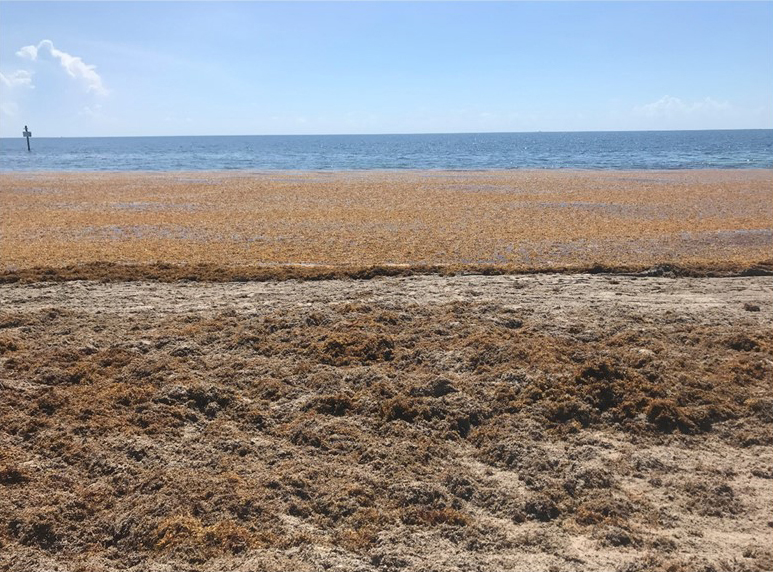
You may have seen the reports. A huge patch of Sargassum (which is seaweed) is bobbing around out in the ocean getting closer and closer to Florida. Reporting has been nothing short of apocalyptic, and people, especially people who live in coastal communities that rely on their beaches for tourism revenue, are getting scared.
But are we helpless, here?
Actually… no!
Can we do something about “the blob?”
Actually… yes!
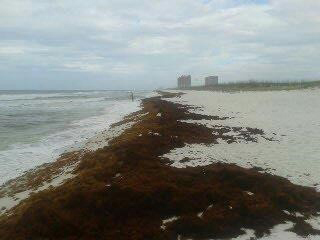
Composting or: How I Learned to Stop Worrying and Love the Blob
A recently published Ask IFAS publication, “Cost Estimates for Producing Sargassum spp. Compost,” explains how coastal communities have turned a problem (piles of smelly, rotting seaweed on their beaches) into a solution (a cost-effective source of nutrients for plants). The publication describes how they did it, and, of probably even greater interest for cash-strapped municipalities and small businesses, what it cost them.
It may be a little late to put a plan in motion for this spring’s seaweed onslaught, but the phenomenon of the massive floating seaweed island that comes ashore and swamps the beach is not a one-time thing. Scientists predict that it is likely to happen to Florida again, often, and soon. So it makes good sense to be thinking of the near future and making investments and plans.
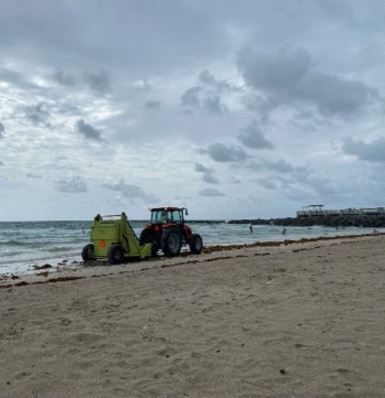
Specifically, authors examined what happened in Ft. Lauderdale when the city set up a Sargassum composting operation. It turns out that with some judicious planning and investment in equipment and personnel, Ft. Lauderdale was able to keep their beaches sparkling.
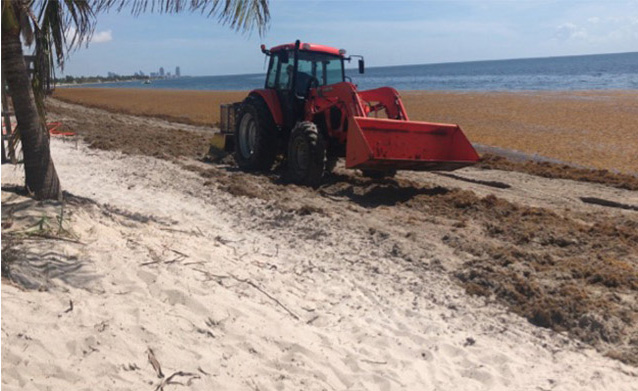
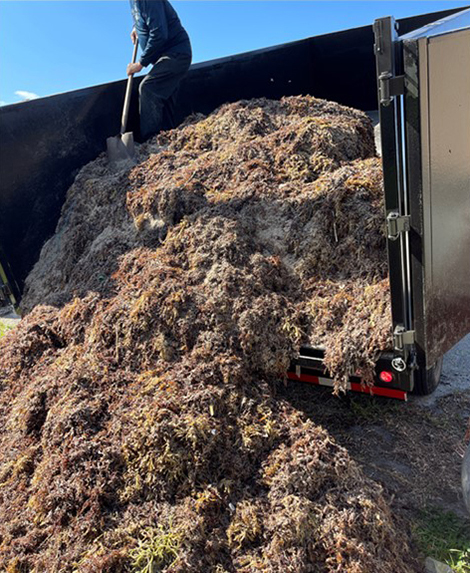
Ft. Lauderdale then composted their Sargassum and not only avoided overwhelming their landfill but as a nice perk were able to use the compost as fill dirt and to provide some of it to townsfolk to use on their lawns and gardens.
What does it cost?
Setting all this up was not simple or cheap; Ft. Lauderdale had to invest in equipment and personnel, and a composting operation demands acreage, which is always hard to find anywhere in Florida but especially near the beach.

Will it work in your community?
It definitely worked for Ft. Lauderdale: “Although the budget for Sargassum clean up and composting may seem large, it represents a cost savings from the alternative of collecting the Sargassum and disposing of it.” So it was pricey, but it was still cheaper than the alternative, and ending up with a still-functional landfill and a useful product was a lot better for the community. Will Sargassum composting work for your municipality? Find out! Get the full story, including simple, clear cost breakdowns and several handy charts, here: https://edis.ifas.ufl.edu/publication/FE1128.
En español: https://edis.ifas.ufl.edu/publication/FE1130
 1
1
